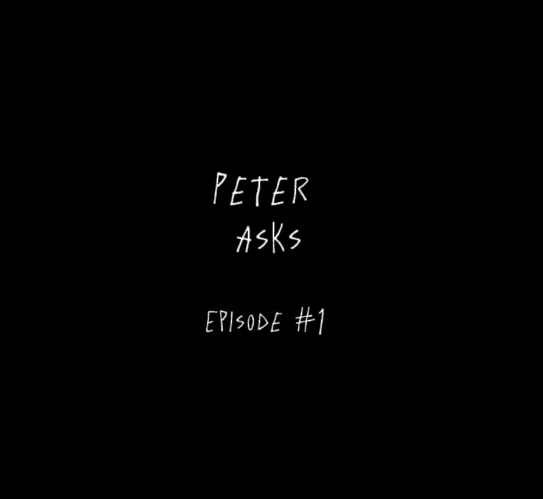The Trial Taken Place in M City on December 3rd
The Trial Taken Place in M City on December 3rd
A script inspired by Albert Camus’s Stranger and Franz Kafka’s The Trial
At about 3.00 a.m. on December 3rd, a brilliant poet, Mr. Boettcher, who was beloved in his community, and famous in the city and even the world, unfortunately, suffered from a car accident and passed away after rescue. Mr. Boettcher was rigorous and modest. His death not only brought grief and regret to readers who loved him but also left a blank page full of sorrow in the hearts of his family and friends. Today, we are trialing individual suspects responsible for Mr. Boettcher’s death in order to bring him justice. But until then, we’ll give suspects the right to defend themselves.
Next, the suspect, the truck driver, will make a defending statement.
Truck Driver: I swear to God I didn’t see him! (sobbing) I drove through that road every day and who knew that sort of thing would happen? It was dark, and the streetlights weren’t working, like always. Damn it. Can you really blame me for this? I already complained about the lights several times to the city department without getting an answer. That night by the time I could see him, he was already staggering on the road just in front of the truck——it was too late to brake even if I wanted to. And the sidewalk signal was red! He should’ve not been on the road.
Sorry to interrupt, but you are saying that he was staggering?
Truck Driver: Yes, I can assure you, the way he walked looked no different from a drunk. If he was sober, he wouldn’t stumble around like that. He must have been drunk, otherwise he wouldn’t have not seen the red sidewalk signal. This has nothing to do with me……I really couldn’t see him that night. I was just driving exactly according to the traffic rules!
Apparently, from this, we can conclude that Mr. Boettcher might have been abusing alcohol, which made him delirious. However, as we know, Mr. Boettcher was known for his self-discipline. He had never drunk more than a half cup of liquor, even when having dinner, not to mention hard liquor. So, what prompted Mr. Boettcher to break his habit and go overboard with his drinking? We learned that he had a fight with his editor in the afternoon on December 3rd. Next, the editor is required to make a statement.
Editor: Yes, we did have an argument.
Then, why did you have the argument?
Editor: Because of his poems. He has let me down. (Sighing) No, he let a lot of people down. His poetry has been reduced to nothingness. I told him, you can’t write like this now, you should rest and wait for the inspiration to come again. He knew I was right, but he refused to acknowledge the reality. He lost his passions and gifts on writing—and he used to be such a talented poet, but not anymore. This has been going on for a long time, and his brilliance? It’s all gone now. You think that I’m a suspect? That the argument that led him to drink himself to the grave was the ultimate cause of his death? You say that he died in a car accident, but to me and his readers, he’s already dead. I mean, spiritual and literary death.
We found a lot of drugs in his room. As one of the people who knew him best, can you explain that?
Editor: Has he come to such a state? Thinking the drugs will inspire him? Well, let me just be frank. He’s done. Not only do these things not inspire him, but they also kill him, sooner or later. You see, spiritual and literary death had fallen upon him, and even without the car accident, he would have met his physical death anyways. It’s just a different way of death. But his death is his own responsibility.
(Whispers in the court)
Whether the suspect’s words were contempt of court is up for debate, but they did point out the fact that Mr. Boettcher’s death could not be explained as a simple accident solely caused by outside factors. Nevertheless, we must express our condolences and understanding for the death of a good man and a poet in this situation. The trial must go on. Are these all the suspects? Not at all. Take the next suspect. State your name.
Author: I am the author who created Mr. Boettcher.
(Uproar in the court)
Silence! Now we need to vindicate the author who created Mr. Boettcher, the Pharmacy worker, and the school president. Not only were they responsible for killing Mr. Boettcher, but also blamed a driver who could not see the road at night and a dutiful editor. Do you have anything to say for yourself, the author?
Author: (Clearing throat) I never thought I’d be in the dock one day. So let me explain if Mr. Boettcher deserves to die. Of course, I know that no one really deserves to die. I know that, and perhaps it would be more appropriate to say: Why did Mr. Boettcher die? (Smiling) Because I wanted to create a tragedy to flush people’s feelings, to achieve the effect of enlightenment, to trigger people’s thinking and reflection? This is just the author’s manipulation, isn’t it? Did Mr. Boettcher have to die because of the forces of fate I had imposed on him? No, you people. The thing to understand, ladies and gentlemen, is that an author creates a character, conceives the beginning of a plot, and then, the fate of that character is out of the author’s control. The character has their own emotions and their own logic. In other words, they are the author’s equal. There’s nothing more the author can do! Mr. Boettcher was bound to lose his brilliance and talents; He was bound to drink out of frustration; He was bound to rush out to the street; He was bound to encounter a careless driver; He was bound to die. And I, as the author, just respected his choice and let it go.
(A burst of chatters, a hubbub of noises, a pandemonium breaking out)
Order! Order! Order in the court! Not only do you refuse to be honest, but you play with words to attempt to deceive everyone. As a writer who controls the life and death of a character, you are heartless and cold-blooded.
Author: Writers are, after all, the worst people in the world. They create misery and feed on it. They create new pain in the severe and lingering rottenness of people. Scold me if you want!
This is contempt of court! From now on we won’t allow you to speak. Poor Mr. Boettcher, may your soul rest in peace. We will serve justice for you. Now we will trial the last suspects. They witnessed Mr. Boettcher’s death and did nothing about it. Whether lamented or delighted, there was no denying that they helped the author to carry out murder after murder. They read details of the death written on paper and felt the tragedy of others. They are the author’s accomplices.
Well then, for those of you readers who have read thus far, please stand up and step into the dock.
Photo by Edward Virvel on Unsplash










